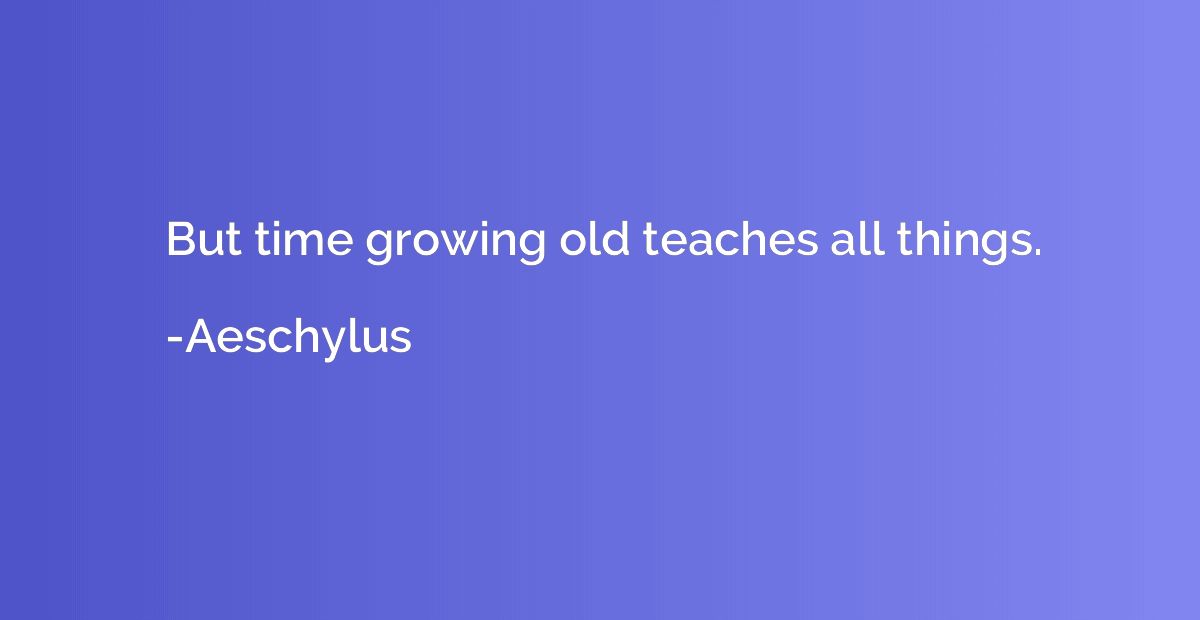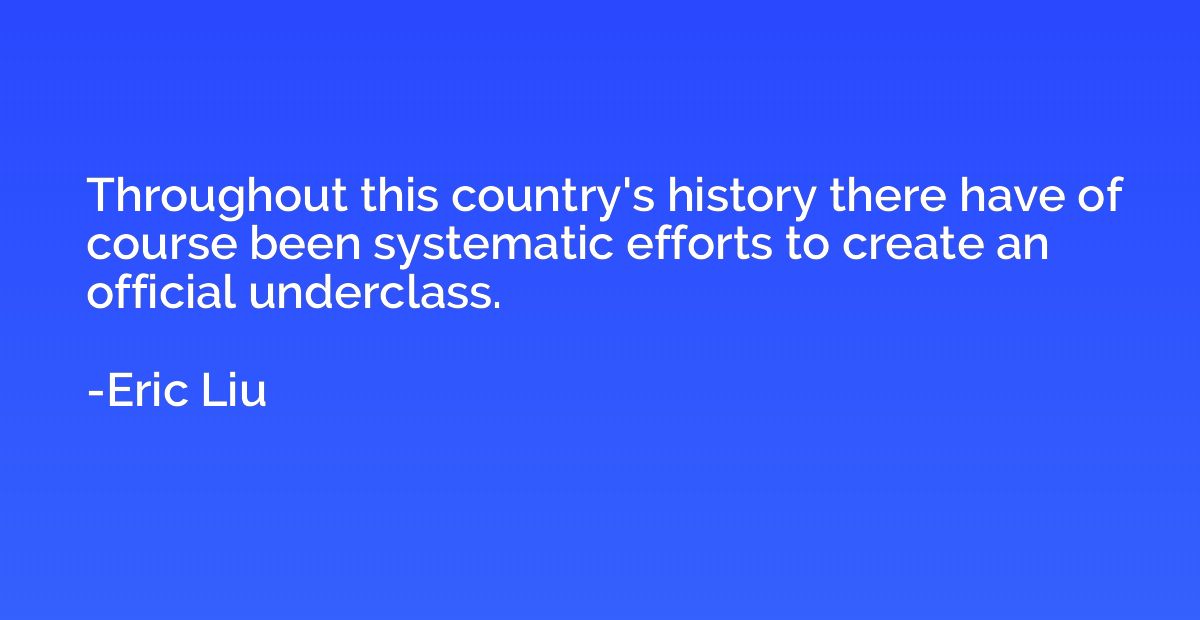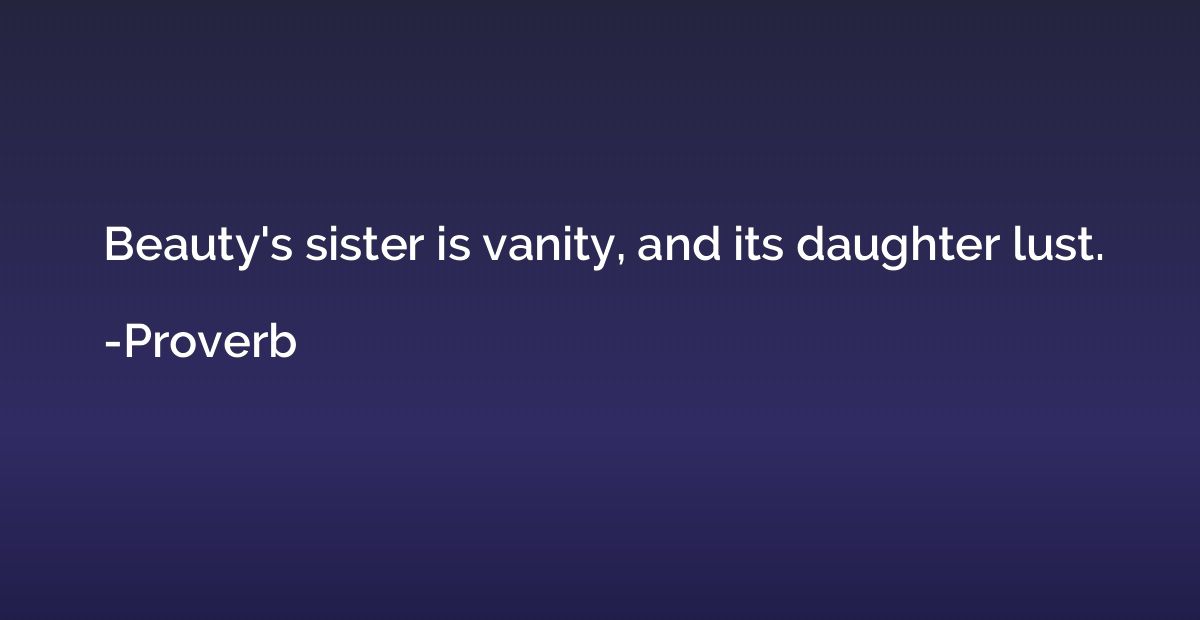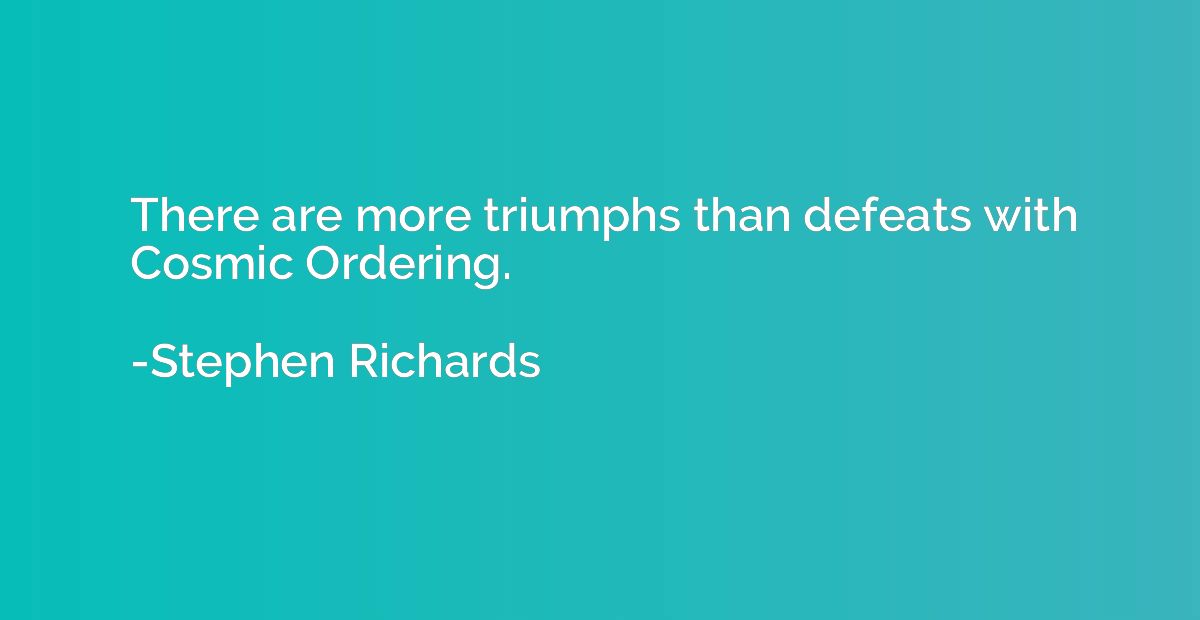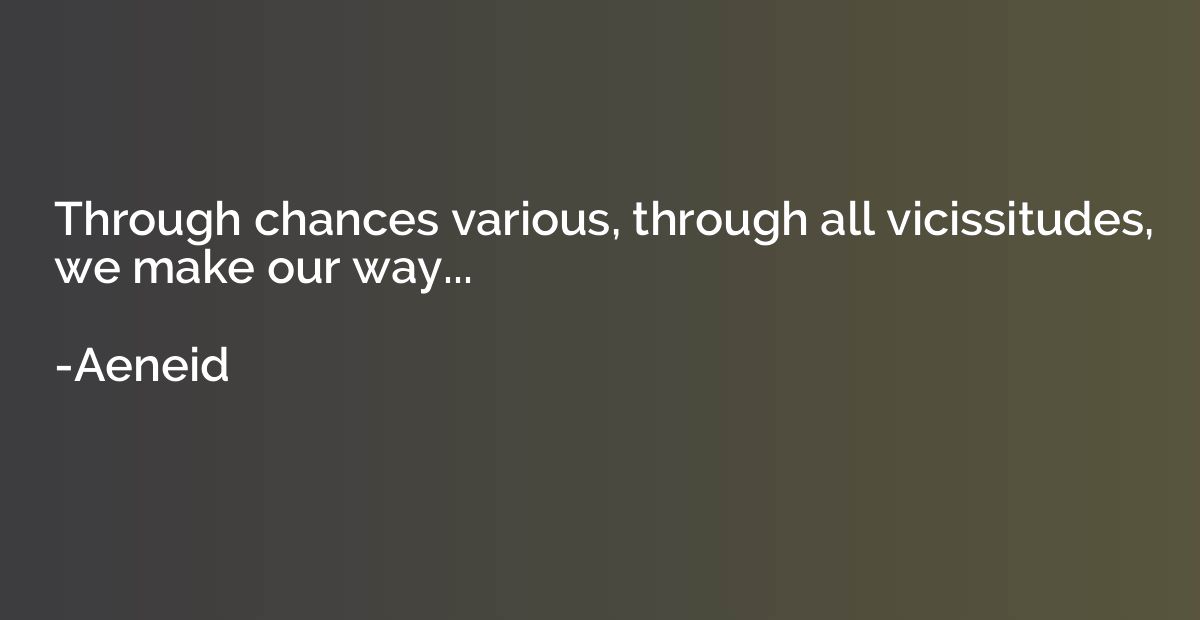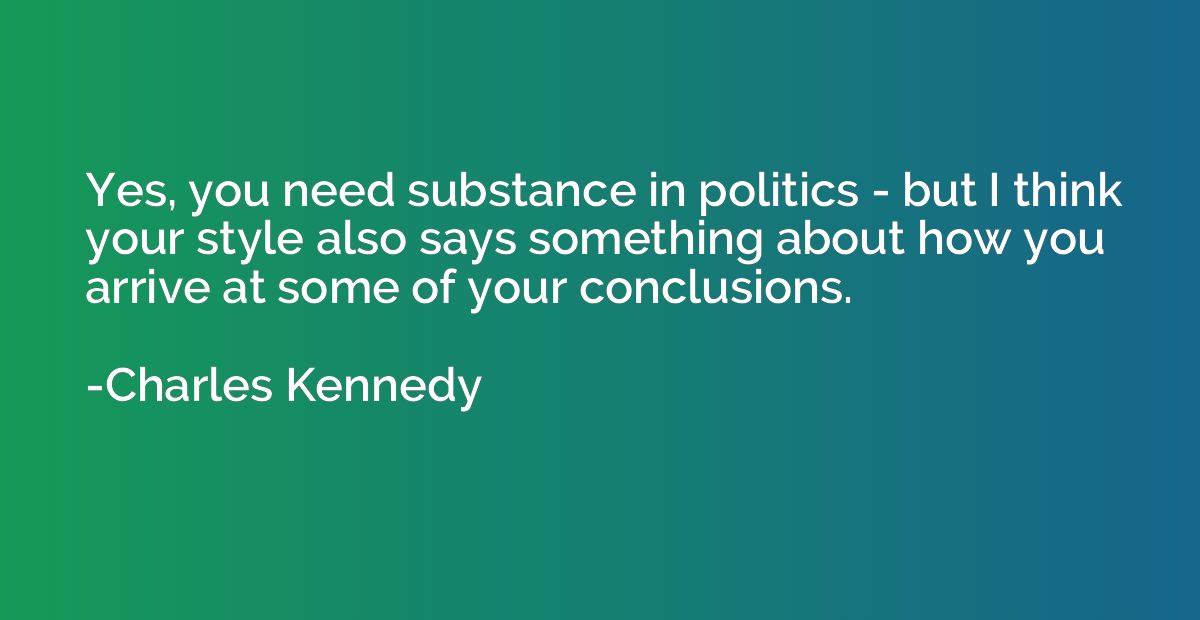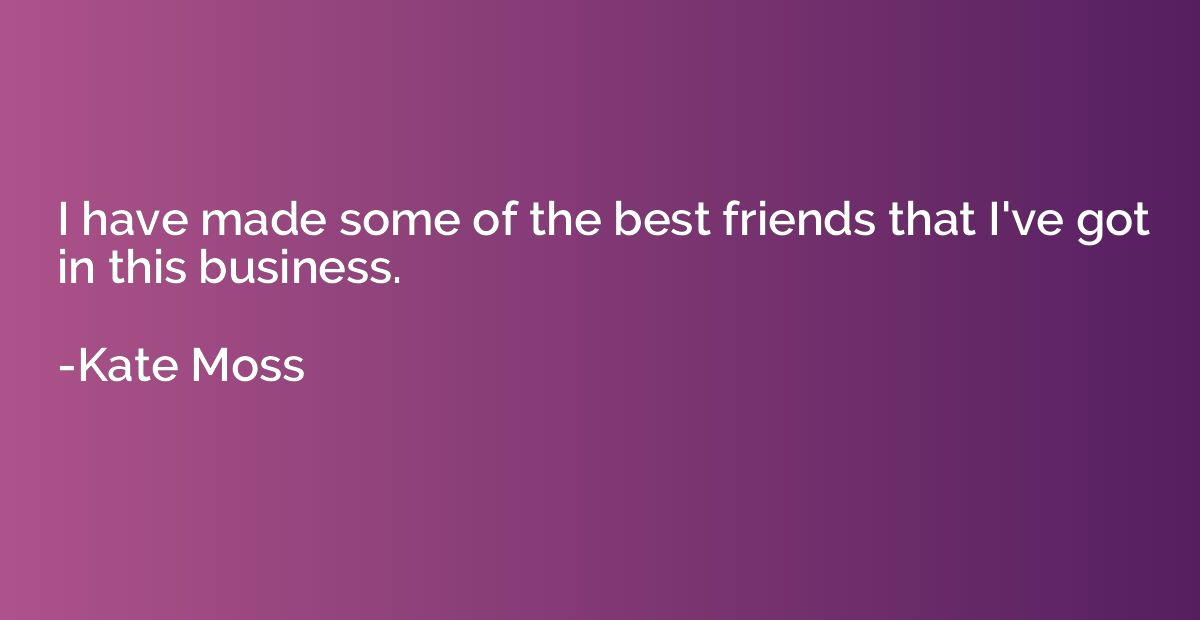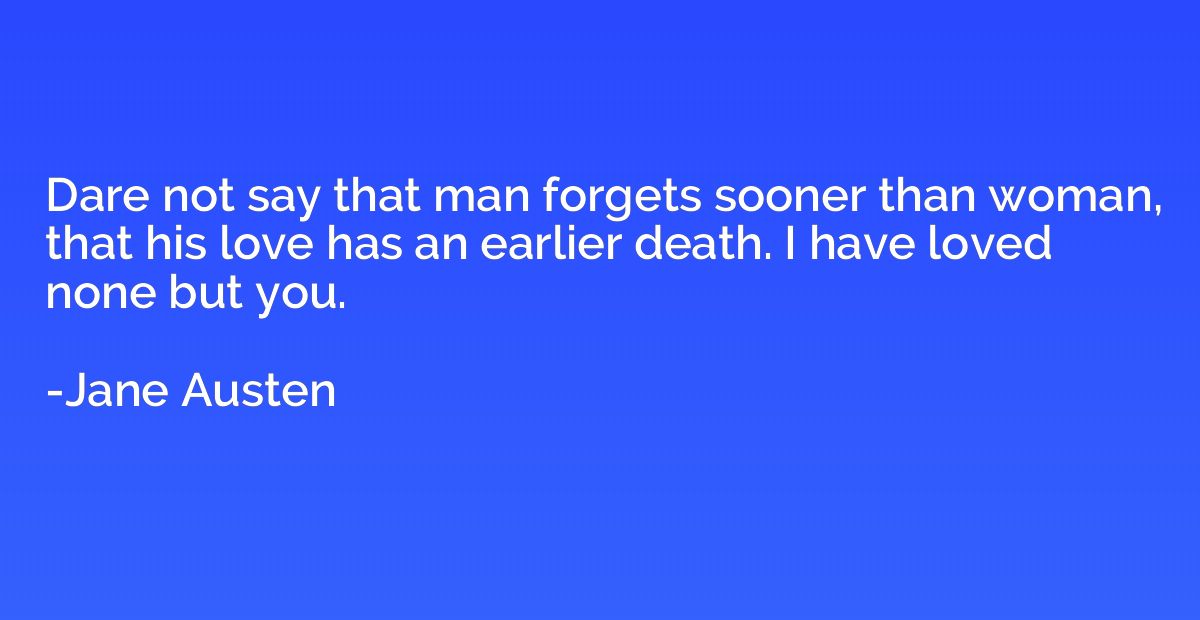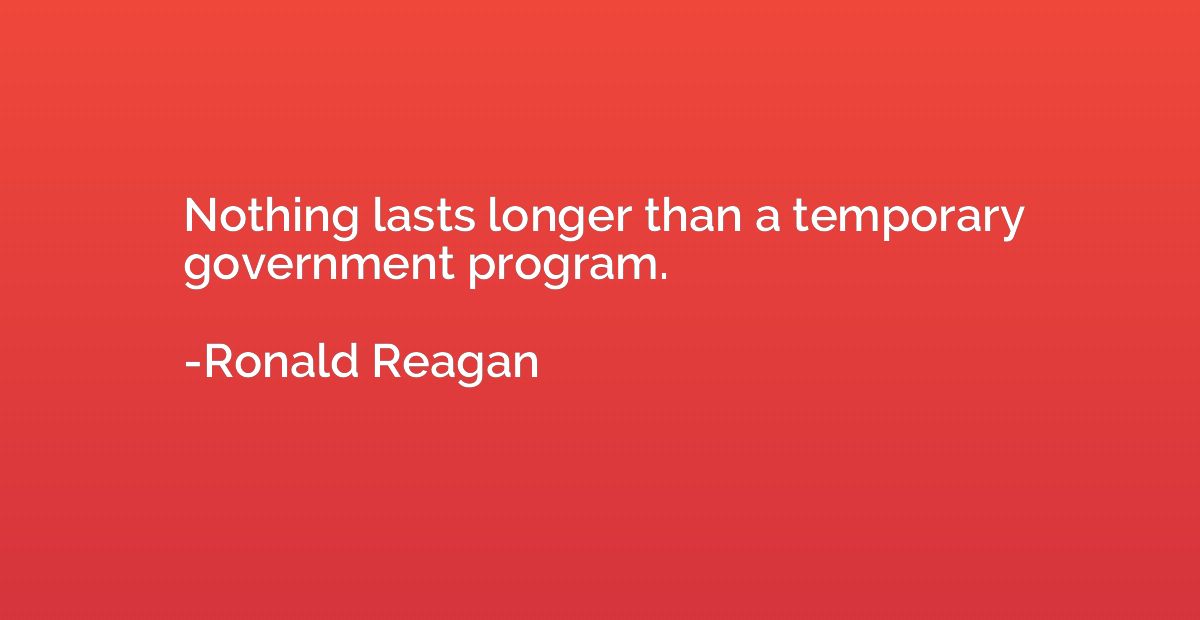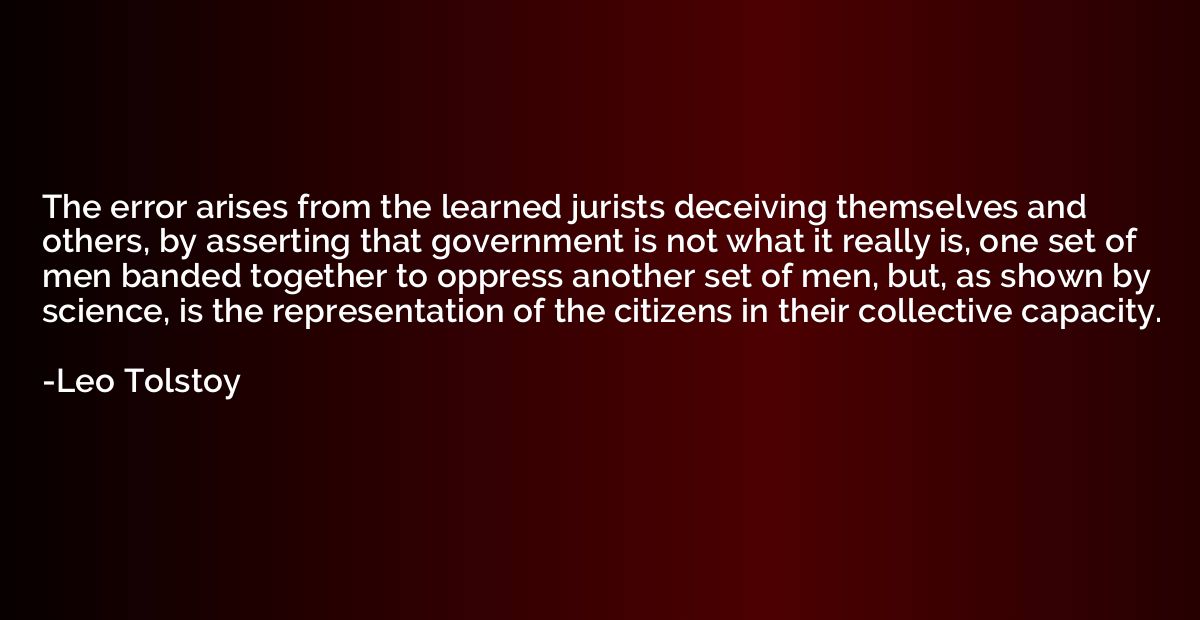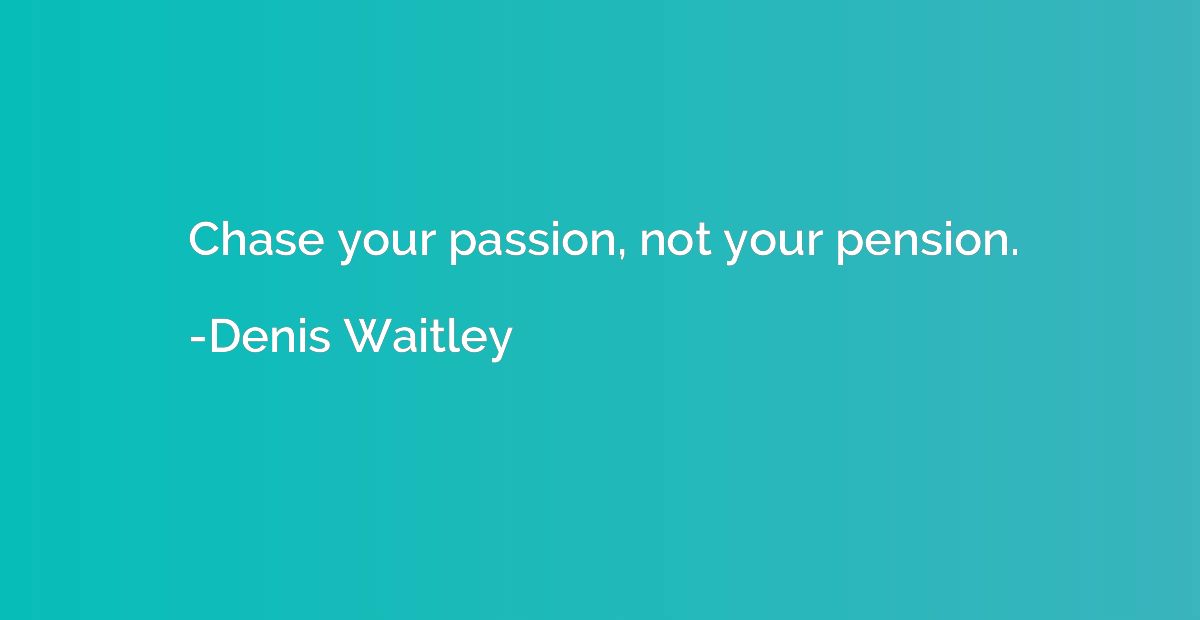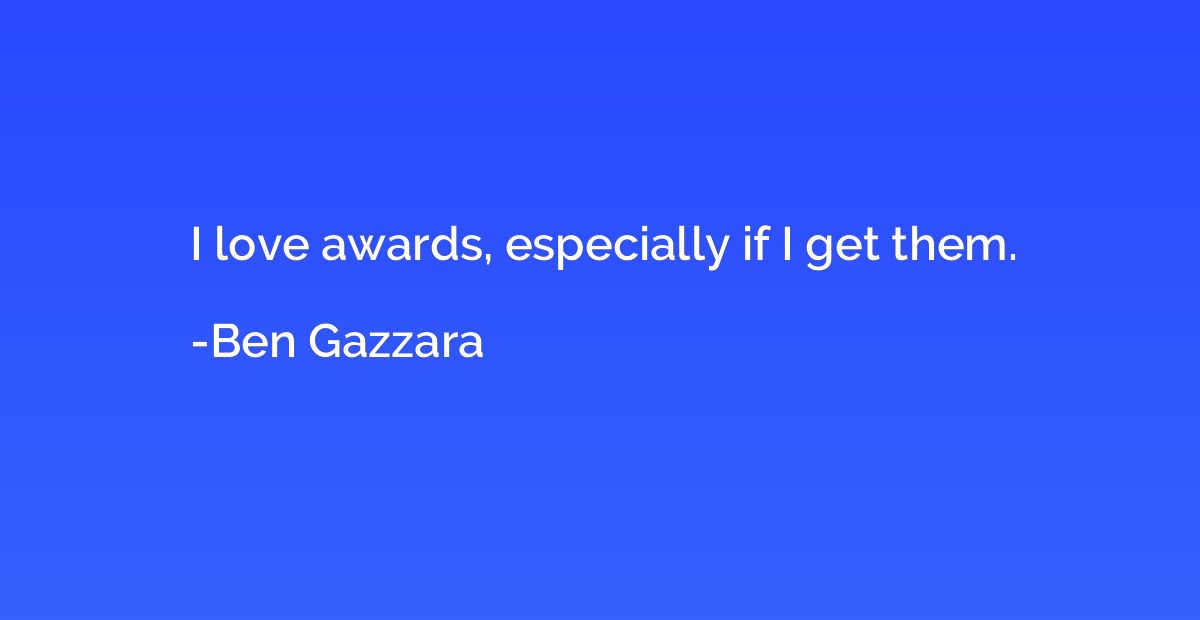Quote by Eden Eliot, quotation submitted
We all have the means to bestow on others the most lavish gifts; love, joy, peace, hope, kindness, acceptance, encouragement, laughter, forgiveness, time. There is not enough money to buy them and not too little money to give them. The more you spend, the wealthier you become; yet nothing will cost you more than what you freely possess to give.
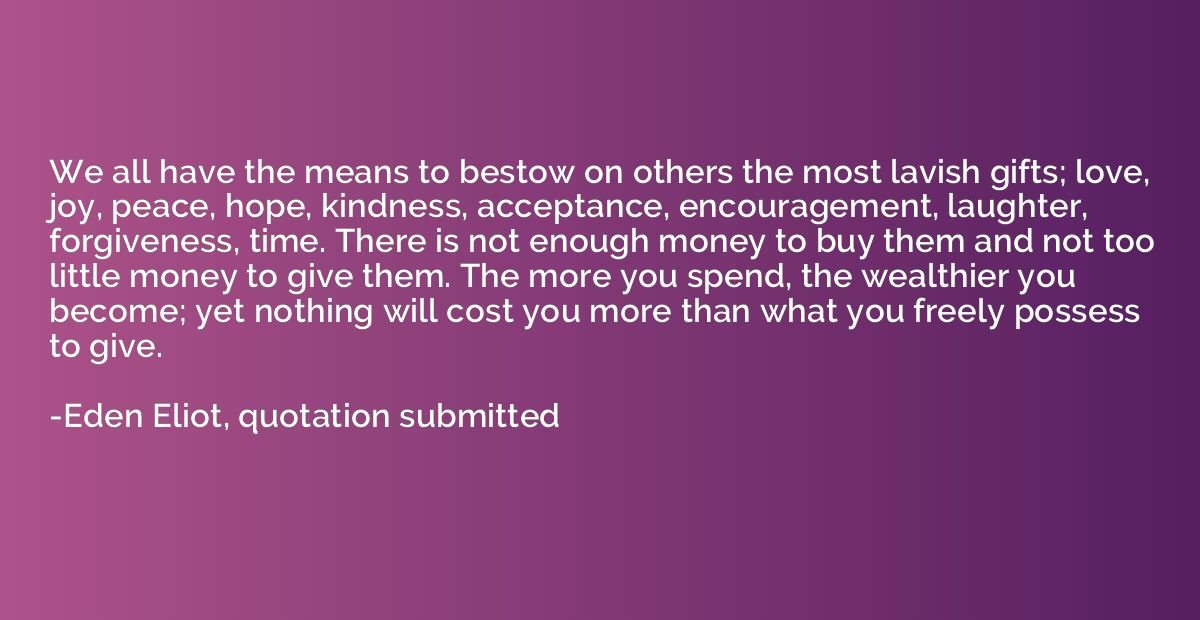
Summary
This quote emphasizes the notion that true wealth lies in the ability to give intangible gifts to others. It suggests that love, joy, peace, and other virtues are invaluable and cannot be purchased with money. Regardless of one's financial situation, everyone possesses the capacity to bestow these gifts upon others. The quote also implies that the more one shares these gifts with others, the richer they become. However, it emphasizes that the cost of giving these precious gifts is nothing compared to the intrinsic abundance that each individual already possesses to give freely.



